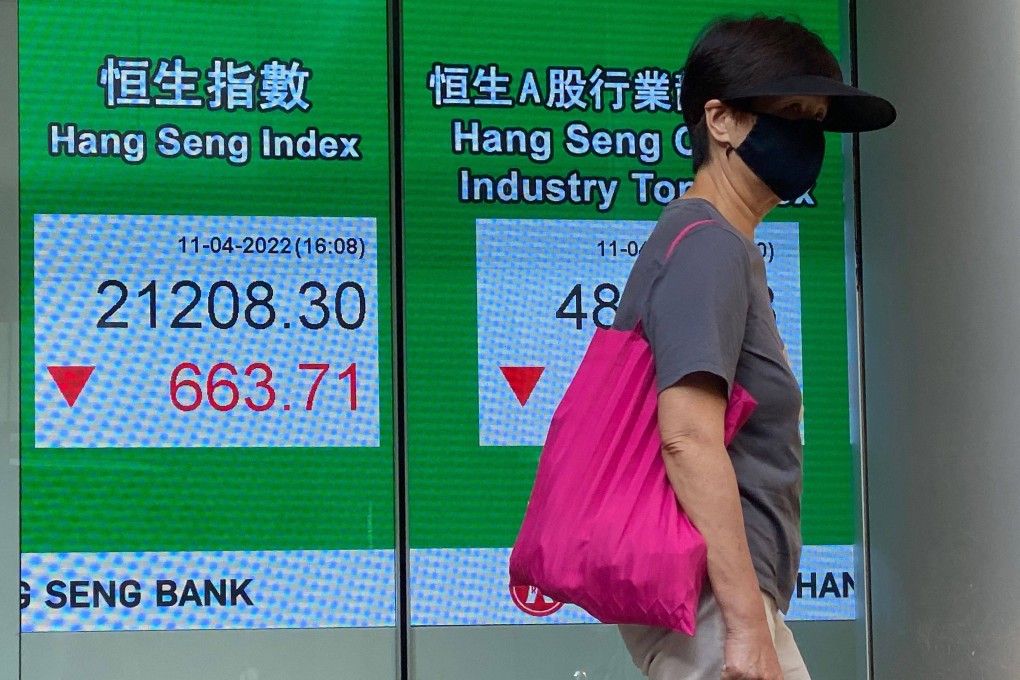Hong Kong stocks waver near 4-week low as CNOOC benefits from oil rally, Alibaba and WH Group suffer on Shanghai lockdown
- Stocks struggled to break out from a four-week low as Shanghai infections hit a record, dimming hopes for a quick exit from a citywide lockdown
- US consumer prices jumped in March by the most in four decades, further entrenching Fed tightening bias

The Hang Seng Index swung to a 0.3 per cent gain to 21,374.37 on Wednesday, after losing as much as 0.8 per cent. Volatility this week reached the highest in about a month. The Tech Index gained 0.4 per cent and the Shanghai Composite Index fell by 0.8 per cent.
CNOOC and PetroChina surged after crude oil futures topped US$100 a barrel as Russia vowed to press on with its Ukraine invasion. Alibaba Group Holding dropped to a one-month low. WH Group, WuXi Biologics and Anta Sports fell at least 2 per cent.
“There’s a lack of confidence in the market given the economic damage from lockdown measures imposed in many parts across China,” Ping An Securities said in a report on Wednesday. “Hong Kong’s market would be no exception to wild price swings, even if the valuation is already beaten down.”
The crisis reinforced expectations that China’s growth will be derailed as its zero-Covid policy and sporadic lockdowns forced factories to shut down while transport disruptions upended supply chains. Pimco is the latest to trim its GDP forecast for 2022.
Alibaba, the owner of the newspaper, slipped 0.5 per cent to HK$98.50, near the lowest close since March 16. WH Group, China’s biggest pork processing firm, tumbled 2.1 per cent to HK$5.05 and WuXi Biologics slid 2 per cent to HK$61.40.
